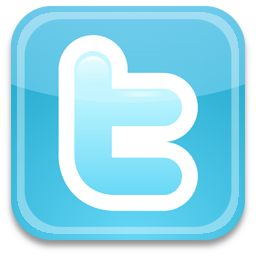The buzz around Twitter is, frankly, reaching a pitched and utterly annoying frenzy. Some of the latest stuff I've read, though, has inspired me to add my voice to the throngs. Yes, that would be you people.
Now let me start by saying I don't use Twitter. I don't even have an account. And this leads me to my first beef about Twitter: the barrier to entry. "Come on!" you say, "All you need is an email address and a password." Yes, This is true. But in a world where a user such as myself already has about 80 trillion user accounts, and about 20 trillion of those are in now-defunct, out-of-style, unused social networks, one starts to think a bit more carefully about signing up for anything at all anymore. I mean, Jesus, I still get email from Friendster. Fucking Friendster! And don't even get me started on the whole online dating thing. Suffice to say, I've been doing this for a while now, and I've gotten gun-shy.
But the other, bigger, more hidden barrier to entry — the one no one talks about much when they talk about Twitter — is the fact that to Twitter "properly" takes a certain kind of work. It's not like starting a blog; you can't just start Tweeting in a vacuum and hope to get anywhere. No, Twitter requires effort and strategy. Effort in the following of other Twitter users and, eventually, strategy in being followed by other Twitterers. It's not that I mind work — I certainly do my fair share of it — but the goal of Twitter work seems to be following and/or being followed. And I've never been much of a pack animal.
A friend of mine, who has also been reading about, but so far refrained from joining, Twitter, recently remarked (in a Facebook status update, no less):
"I've been reading about this for the past couple days and it seems to me what Twitter does is take educated and mobile people who would form a kind of elite regardless of the technology of the day, and offers them another way to seperate [sic] themselves from the masses while at the same time allowing them to assert that they are in fact very well-connected."
This describes a feeling I've had for some time about Twitter, but have been unable to put into words. Twitter has an air of exclusivity that I find off-putting. Defensive article titles like, "Twitter Quitters Just Don't Get It" don't do much to ameliorate that feeling. And so, something that at it's heart is perfectly benign, and potentially even useful or entertaining — an extremely micro micro-blogging platform with a small per-post character limit — has become something that fosters a certain sense of resentment from those of us who choose not to partake of its offerings. If there's been a Twitter backlash, it's probably largely due to the defensive posture of its users. And I believe it's partly this posture that my friend is talking about.
It seems to me that the other part of my friend's argument — and the other part of my hesitance at signing up — is context. Like I said, I'm kinda burnt out on the whole social networking thing. But I recently joined Facebook just the same, and I've stuck around. And the reason I can stomach Facebook is context. When you sign up for Facebook you immediately have a context, and that context is your friends. What better context could there be? Everyone wants to stay connected with friends, and Facebook handles this better than any social network I've used so far. I think Twitter's lack of context, while certainly being part of its charm, is another barrier to entry for many. For the technologically savvy (which I consider myself to be), and for those inclined to experiment with social networks in general (which I no longer consider myself to be so much), the lack of context is far less vexing. And those seem to be just the sorts of people using Twitter — the elite my friend is referring to. They seem to have figured out a way to make Twitter genuinely useful. For them. But by outward appearances, Twitter's context seems to be less about staying connected and more about appearing clever amongst a group of peers.
To those elite Twitter lovers though, I say bully for you. You get on that Twitter client-of-the-day (I must admit, some of the client apps look beautiful enough to make me want to join purely from an interest in interface design) and you tweet your little hearts out. I bear no grudge against this. I just personally have no desire to be any more connected than I already am. I don't see how Twitter will be useful or enjoyable for me. I don't get Twitter, and I'm pretty sure I just don't really want to.
And bully for me too. 'Cause guess what? I don't get Flickr either. Or MySpace. Or feed readers. In fact, there's a whole lot of stuff I don't get.
And all the snide little articles in the world aren't going to change my mind.



